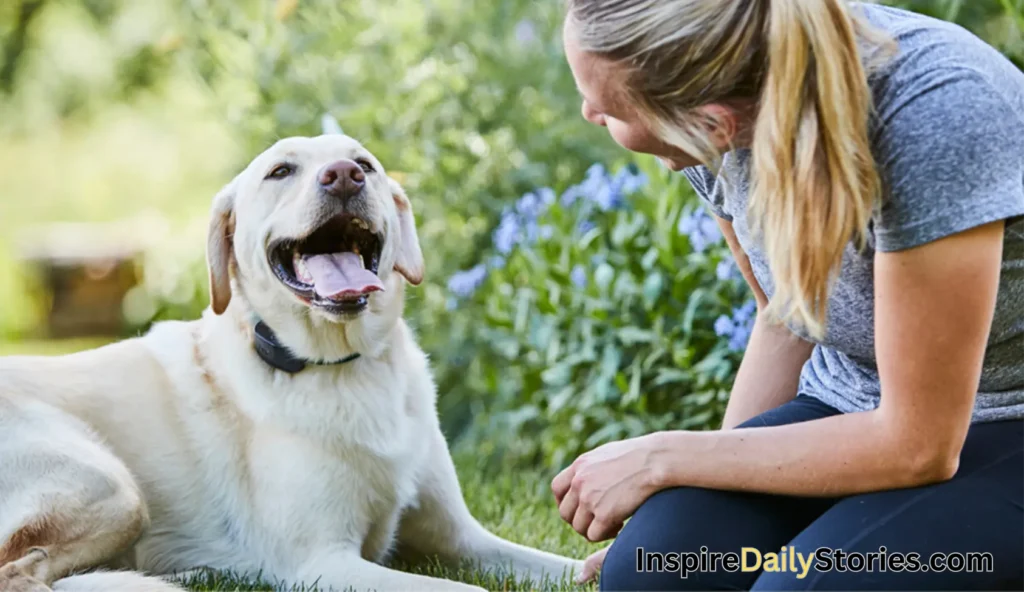What Breed of Dog Is Best Suited to Your Family?

Introduction
A. Hook: The Importance of Choosing the Right Dog Breed for Your Family
Selecting the perfect dog for your family is incredibly crucial. Just like finding the perfect friend, picking the right dog can make a big difference in your life. It’s like choosing the right puzzle piece to complete your family picture.
B. Overview of the Article’s Purpose: Finding the Ideal Canine Companion
This article is all about helping you find the perfect furry friend for your family. We’ll explore different types of dogs and match them with what your family needs and wants. Think of it as a guide to finding your family’s new best buddy.
C. Brief Explanation of Factors to Consider When Selecting a Dog Breed
When you’re picking a dog, there are a few things you need to think about. Things like how big your house is, how much time you can spend with the dog, and what kind of activities your family likes to do. These factors can help you find a dog that fits right in with your family’s lifestyle.

Understanding Your Family’s Lifestyle and Needs
A. Size of the Family and Age of Members
Consider how many people are in your family and how old they are. If you have little kids, you might want a dog that’s gentle and patient.
B. Activity Level and Exercise Requirements
Think about how much energy your family has. Do you like going for runs or prefer chilling at home? Some dogs need lots of exercise, while others are happy with a short walk.
C. Living Space: Apartment, House, Rural Area, etc.
Where you live matters too. If you’re in a small apartment, a big, active dog might not be the best idea. But if you have a big yard, you can consider larger breeds.
D. Allergies and Sensitivities
Check if anyone in your family is allergic to dogs or sensitive to fur. Some breeds shed less or are better for people with allergies, like poodles or schnauzers.

Characteristics of Different Dog Breeds
A. Small Breeds: Overview, Temperament, and Suitability
Small dogs can be like tiny bundles of joy. They’re often cute, cuddly, and great for snuggling. They’re perfect for families with limited space or those who want a lap dog.
B. Medium Breeds: Overview, Temperament, and Suitability
Medium-sized dogs are like the Goldilocks of the dog world—not too big, not too small, just right. They’re often friendly, energetic, and adaptable, fitting into many different lifestyles.
C. Large Breeds: Overview, Temperament, and Suitability
Big dogs can be gentle giants. While they need more space and exercise, they can be loving and loyal family members. They’re great for families with lots of room to roam.
D. Specialized Breeds: Guard Dogs, Service Dogs, etc.
Some dogs have special jobs. Guard dogs protect homes, service dogs help people with disabilities, and therapy dogs offer comfort. These breeds need specific training and care but can be incredibly rewarding additions to the family.

Matching Breed Characteristics with Family Dynamics
A. Compatibility with Children
Some dogs love kids and are super gentle with them. It’s important to find a breed that gets along well with children and won’t get easily irritated by their playful antics.
B. Compatibility with Other Pets
If you already have other pets, like cats or smaller animals, you’ll want a dog that can coexist peacefully with them. Some breeds are more tolerant of other animals and can become best buddies with your existing pets.
C. Energy Levels and Exercise Requirements
Different dogs have different energy levels. Some are like little balls of energy, always ready to play fetch or go for a run. Others are more laid-back and prefer lounging on the couch. Make sure the dog’s energy matches your family’s activity level.
D. Grooming Needs and Maintenance
Every dog needs grooming, but some breeds require more upkeep than others. Long-haired breeds might need daily brushing to prevent mats and tangles, while short-haired breeds might need less maintenance. Consider how much time and effort you’re willing to put into grooming when choosing a breed.

Considering Health and Longevity
A. Common Health Issues Associated with Specific Breeds
Different dog breeds can have different health problems. Some breeds are prone to issues like hip dysplasia or breathing problems. It’s essential to be aware of these potential issues before choosing a breed.
B. Lifespan Expectancy and Long-Term Commitment
When you get a dog, you’re making a long-term commitment. Some breeds live longer than others, so it’s essential to consider how long you’re willing to care for your furry friend. Be prepared for the responsibilities that come with a dog’s lifespan.
C. Veterinary Care and Health Maintenance
Just like humans, dogs need regular check-ups and medical care. Make sure you can afford vet visits, vaccinations, and any necessary treatments. Keeping your dog healthy requires commitment and financial responsibility.
Finding the Perfect Match
A. Researching Breed Traits and Characteristics
Before making any decisions, it’s important to do your homework. Learn about different dog breeds, their personalities, needs, and traits. This helps you understand which breed might be the best fit for your family.
B. Consulting with Breed Experts or Veterinarians
If you’re unsure about which breed to choose, don’t hesitate to seek advice. Talk to breed experts or veterinarians who can provide valuable insights based on their experience and knowledge. They can help you make an informed decision.
C. Visiting Shelters and Rescue Organizations
Think about giving a home to a dog from a shelter or rescue group. Many wonderful dogs are waiting for loving homes in these places. Visiting shelters allows you to meet various dogs and see if any of them capture your heart.
D. Meeting Potential Canine Companions in Person
Finally, meeting potential canine companions in person is crucial. Spend time interacting with the dogs you’re interested in. See how they respond to you and your family members. This firsthand experience can help you determine if the dog is the right match for your family’s lifestyle and needs.
Conclusion
A. Recap of the Importance of Choosing the Right Dog Breed
Picking the right dog breed is like finding the missing puzzle piece for your family. It can make a huge difference in your happiness and the dog’s too.
B. Emphasis on Tailoring the Choice to Fit Your Family’s Unique Needs
Every family has its individual characteristics and specific needs. Make sure the dog you choose fits perfectly with your family’s lifestyle, energy levels, and living situation.
C. Encouragement to Take Time and Consider All Factors Carefully
Don’t rush into choosing a dog. Take your time to research, visit shelters, and meet potential furry friends. Considering all factors carefully ensures you make the best decision.
D. Final Thoughts on the Joy and Reward of Finding the Perfect Canine Companion
When you find the right dog for your family, it’s like discovering a treasure. The joy and love they bring into your life are priceless. So, take your time, consider all options, and get ready for a lifetime of happiness with your perfect furry companion!
People also ask
What type of dog is best for the family?
The best type of dog for a family depends on factors like size, energy level, and temperament. Medium-sized breeds like Labrador Retrievers, Golden Retrievers, and Beagles are often great choices.
How do I choose a dog for my family?
Consider your family’s lifestyle, living situation, and preferences. Research different breeds, visit shelters, and spend time interacting with potential dogs before making a decision.
What is the most loving family dog?
Several breeds are known for their affectionate nature, including Labrador Retrievers, Golden Retrievers, and Cavalier King Charles Spaniels.
What is the safest dog breed?
There isn’t one specific “safest” breed but breeds like the Labrador Retriever, Bulldog, and Boxer are known for their gentle and friendly temperament.
What are the top 3 best family dogs?
Popular choices for family dogs often include Labrador Retrievers, Golden Retrievers, and German Shepherds due to their loyalty, gentleness, and intelligence.
What is the easiest dog to train?
Breeds like the Labrador Retriever, Poodle, and Border Collie are known for their intelligence and trainability, making them easier to train than others.



